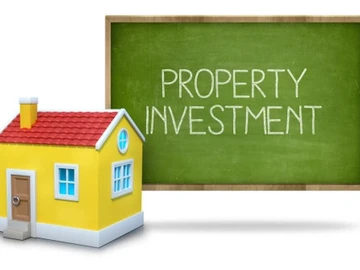Real estate investment has become increasingly popular over the past two decades, attracting both institutional investors and individuals. With inflation fears and global market instability affecting traditional investment classes, property offers a relatively stable and lucrative alternative.
However, investing in real estate is not without its challenges. It often requires a substantial capital outlay and thoughtful decision-making. To minimize risk and improve your return on investment, it’s important to approach real estate with a strategic, informed plan.
Types of Real Estate Investments
Before diving into the market, it's important to understand the different property categories available:
- Residential: Apartments, townhouses, cluster homes, and single-family houses.
- Commercial: Office spaces, shopping centers, and retail outlets.
- Industrial: Warehousing, manufacturing, and logistics hubs.
- Tourism-related: Lodges, hotels, BnBs in high-traffic areas like Victoria Falls, Kariba, and Nyanga.
- Specialized Properties: Student housing, medical parks, retirement communities.
Each option varies in terms of cost, complexity, and expected returns, so choose based on your goals, experience, and budget.
Key Principles for First-Time Investors
Even if you have a large budget, it’s smart to start conservatively. Target lower to mid-priced investments first to gain experience without overexposing yourself.
Avoid this common mistake: Assuming that building a property will automatically attract tenants or buyers. Real estate doesn’t work on a “build it and they will come” basis thorough research is essential.
Location Matters: Research is Key
To maximize returns and minimize risk, evaluate the area carefully. Focus on:
- Demand: Are there buyers or tenants actively looking in this location?
- Rental yields: Are current rates healthy and sustainable?
- Growth potential: Look at regeneration plans, infrastructure development, or transport links.
- Security & convenience: Proximity to schools, shops, healthcare, and roads.
Hot investment zones in Zimbabwe include:
- Harare suburbs: Pomona, Marlborough, Greendale (great access via Harare Drive).
- Student markets: Bindura, Chinhoyi, Bulawayo.
- Tourism hotspots: Victoria Falls, Hwange, Nyanga, Kariba.
Budgeting and Expected ROI
Before buying, calculate all associated costs and returns:
- Purchase price + renovations
- Legal, council, and agent fees
- Operating costs: Maintenance, rates, levies
- Expected monthly or annual rental income
- Capital appreciation potential
Subtract expenses from projected revenue to get an estimated ROI. This will guide your decision and help you choose between multiple options.
Understand the Tax and Legal Framework
Be informed about taxes and obligations related to your investment:
- Capital Gains Tax (CGT)
- Property Rates & Levies (from local councils or Rural District Authorities)
- Income tax on rental income (for landlords)
- ZIMRA registration and compliance if you scale your portfolio
Failing to plan for taxes can eat into your returns or delay property transfers.
Why Real Estate is Worth It
Despite requiring significant due diligence, property is a powerful investment class:
1. Excellent Returns
- Long-term property growth can outperform many traditional assets.
- Short-term flips or residential builds offer even higher returns if well-executed.
- Property values typically rise alongside inflation.
- Rent also increases with inflation, protecting your purchasing power.
3. Stability Over Time
- Real estate is less volatile than stocks due to slower transaction cycles.
- Rental income remains relatively stable even during downturns.
4. Cash Flow Potential
- Monthly rental income offers consistent returns.
- Reinvesting rental income compounds your wealth.
5. Tangible Security
- You own a physical asset land or buildings unlike shares or digital investments.
- It’s easier to manage, monitor, or improve your asset directly.
Final Thought
Real estate offers excellent opportunities for growth, cash flow, and security especially in uncertain markets like today’s. However, smart investing requires patience, planning, and thorough market research.
Start small. Research thoroughly. Build wisely.
 Continue with Facebook
Continue with Facebook
 Continue with Email
Continue with Email














